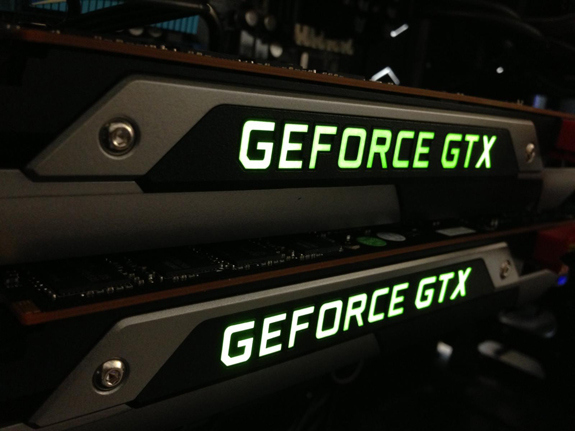This post has not been edited by the GamesBeat staff. Opinions by GamesBeat community writers do not necessarily reflect those of the staff.

Nvidia’s explanation for why the graphics hardware company — for the first time — passed up offers to develop chips for any game console basically ended with it talking crap about consoles in general. What Nvidia says may be true, but it also doesn’t really matter that much when you think about it.
Nvidia’s senior vice president went on about the power gap between the upcoming consoles and gaming PCs. That gap does exist — and this may actually be the first generation where, right out of the gate, game consoles are inferior to gaming PCs — but that in itself has never really mattered for the same reason that console-to-console comparisons have never mattered.
The obvious reason is that the games are what matter, what software actually runs on each console. We don’t live in a world yet where all gaming devices run the same games, and how well a game runs depends primarily on hardware. You may be able to compare one PC to another or one Android device to another, but cross-platform comparisons are really useless for the majority of people buying games. It’s not like comparing cars that all use the same fuel and drive on the same roads.
It doesn’t matter whether or not a gaming PC will be able to run Killzone: Shadow Fall better than the PlayStation 4. That game is never going to be available on PC. Journey, a PlayStation 3 exclusive of modest technical prowess, is equally inaccessible to gaming PCs.
Of course, those are just platform exclusives we’re talking about. In the world of multiplatform games, the power of each individual platform only matters to the extremely discerning gamer who wants to buy the best version of a game. The vast majority of mainstream gamers will each stick to their one preferred platform and buy that platform’s version of a game, regardless of how much better other versions might be. If this weren’t true, the PC versions of most games, which always look and run the best, wouldn’t be selling the least copies.

The only situation in which consoles would prove to be a hardware power threat to PCs is if they were so ahead of their time upon launch that the PC versions of multiplatform games required prohibitively expensive systems to look as good as the console versions. This may have happened around the launches of previous generation of game consoles, but we’re pretty sure it’s not gonna happen with the PS4 and next Xbox. You won’t need a $2,000 computer to run the PC versions of next-generation launch games.
And the only situation in which you could say consoles are “too weak” would be when a significant amount PC games come out that absolutely can’t run on consoles. That did start to happen toward the end of the PlayStation 2 era, but it didn’t really happen toward the end of the current console generation.
As we saw with current-generation games, most developers are probably going to develop for the lowest-common denominator in terms of hardware power in the next generation and then make slightly better versions for more powerful machines and never taking full advantage of the extra headroom. During this generation, the only truly stunning-looking PS3 games were all developed by Sony’s own studios. There are almost no PC games right now that are truly impossible to run on an Xbox 360 or PS3; although, there are quite a few that look significantly better on PC.
The only hardware aspect of consoles that looks truly impressive by all measures (including gaming PCs) is RAM. The PS4’s 8GB of unified GDDR5 RAM gives it more and faster memory than any PC graphics card has access to right now. This could theoretically give some serious advantages to PS4 games, but most likely only exclusives will explore those possibilities since multiplatform games will likely be optimized for the lowest-common denominator. Those exclusive PS4 games will be inaccessible to other platforms — 8GB of GDDR5 RAM or not. (We don’t know what the next generation Xbox is doing in that department as of this writing, though.)
Bottom line: If you get a PS4, it shouldn’t be for how powerful it is but for what games are on it that you can’t get on the PS3 or PC or Xbox. You should really look at it like making the decision to buy Mac OS instead of Windows 8.
Originally posted on MultiPlatform
